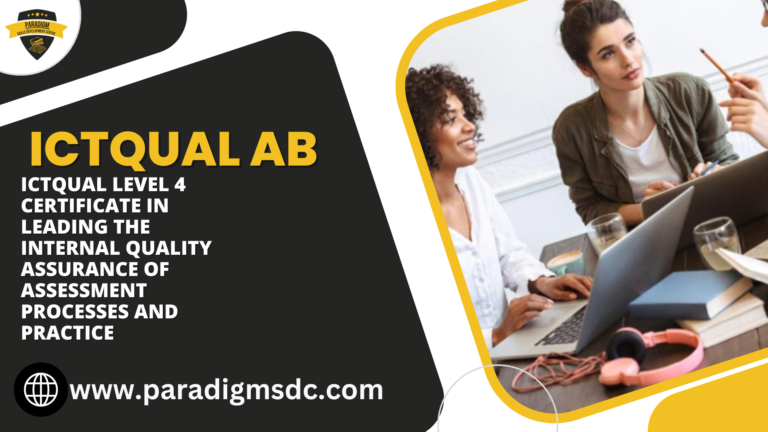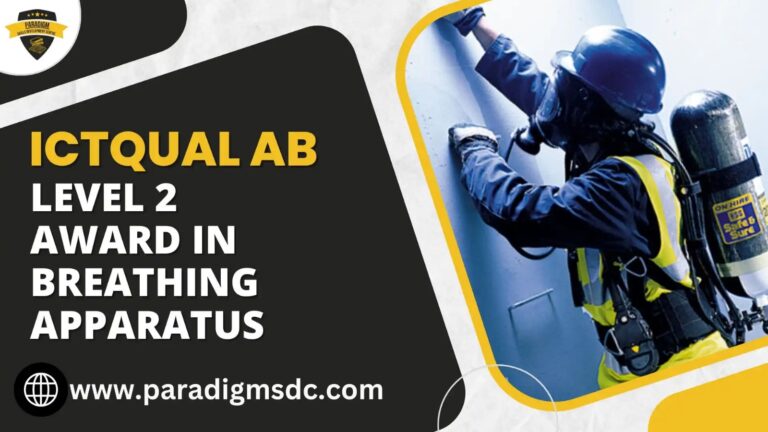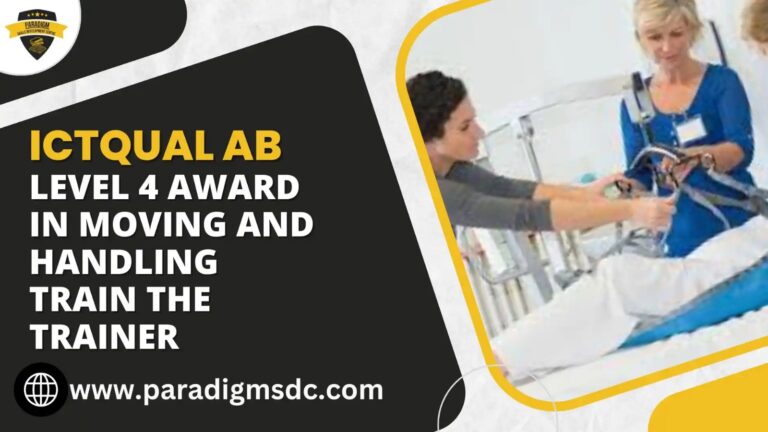Course Introduction
The ICTQual ISO/IEC 20000 IT Service Management System Lead Auditor course is designed to provide professionals with the knowledge and skills necessary to audit IT Service Management Systems (ITSMS) in accordance with ISO/IEC 20000 standards. This course equips participants with the expertise to plan, conduct, and report on ITSMS audits, ensuring that organizations can effectively manage and improve their IT services.
Course Overview
The ISO/IEC 20000 IT Service Management System Lead Auditor course is a comprehensive training program that covers the principles and practices of auditing ITSMS. It includes a detailed examination of ISO/IEC 20000 standards and the processes involved in managing IT services. The course combines theoretical knowledge with practical exercises, case studies, and role-playing scenarios to enhance learning and application.
Course Study Units
- Introduction to IT Service Management (ITSM)
- Fundamentals of ISO/IEC 20000
- Auditing Principles and Techniques
- Planning and Preparation for Audits
- Conducting Audits
- Audit Reporting and Follow-Up
- Continuous Improvement and Best Practices
- Role of the Lead Auditor
Learning Outcomes
Upon completing the ICTQual ISO/IEC 20000 IT Service Management System Lead Auditor course, participants will be able to:
- Introduction to IT Service Management (ITSM):
- Understand the key principles and concepts of IT service management.
- Explain the importance of ITSM in modern organizations.
- Identify the role of frameworks such as ITIL in IT service delivery.
- Recognize the benefits of implementing effective IT service management practices.
- Fundamentals of ISO/IEC 20000:
- Explain the structure and requirements of the ISO/IEC 20000 standard.
- Define key terms and concepts related to ISO/IEC 20000.
- Identify the core processes and components of an IT service management system compliant with ISO/IEC 20000.
- Discuss the significance of ISO/IEC 20000 certification for organizations and service providers.
- Auditing Principles and Techniques:
- Understand fundamental audit principles such as independence, integrity, and confidentiality.
- Apply various audit methodologies and techniques to assess compliance with standards.
- Demonstrate proficiency in gathering evidence and conducting interviews during audits.
- Evaluate the effectiveness of audit procedures and techniques in ensuring the integrity and accuracy of audit findings.
- Planning and Preparation for Audits:
- Develop comprehensive audit plans that clearly define scope, objectives, and criteria.
- Conduct risk assessments and prioritize audit activities accordingly.
- Create audit documentation, including checklists, schedules, and communication plans.
- Ensure that audit plans are aligned with organizational goals and objectives.
- Conducting Audits:
- Conduct on-site and remote audits of IT service management systems effectively and efficiently.
- Utilize appropriate techniques to verify compliance with ISO/IEC 20000 requirements.
- Demonstrate professionalism and objectivity throughout the audit process.
- Collaborate with audit team members to ensure the thoroughness and accuracy of audit findings.
- Audit Reporting and Follow-Up:
- Prepare clear and concise audit reports that accurately communicate findings and recommendations.
- Identify non-conformities and opportunities for improvement during audits.
- Develop corrective action plans and monitor their implementation and effectiveness.
- Ensure that audit reports and follow-up activities are conducted in accordance with relevant standards and guidelines.
- Continuous Improvement and Best Practices:
- Understand the importance of continual improvement in IT service management.
- Identify best practices for enhancing ITSM processes and procedures.
- Implement strategies for monitoring and measuring the effectiveness of IT service management practices.
- Incorporate lessons learned from audits and other feedback mechanisms to drive ongoing improvement.
- Role of the Lead Auditor:
- Describe the responsibilities and duties of a lead auditor within an audit team.
- Demonstrate leadership skills in guiding audit teams and managing audit resources effectively.
- Ensure compliance with audit standards and procedures throughout the audit process.
- Foster a collaborative and supportive environment within the audit team to promote professionalism and excellence.
Course Benefits
- Enhanced Professional Competence: Gain in-depth knowledge and skills in ITSMS auditing, boosting your professional competence and credibility.
- Career Advancement: Enhance your career prospects by becoming a certified lead auditor for ISO/IEC 20000 ITSMS.
- Organizational Improvement: Help your organization achieve and maintain compliance with ISO/IEC 20000 standards, leading to improved IT service management.
- Networking Opportunities: Connect with other professionals in the field and expand your professional network.
- Practical Experience: Gain hands-on experience through practical exercises and real-world scenarios.
Who Is This Course For?
The ICTQual ISO/IEC 20000 IT Service Management System Lead Auditor course is ideal for:
- IT professionals and managers responsible for IT service management
- Auditors seeking to specialize in ITSMS auditing
- Consultants and advisors involved in IT service management
- Quality managers and professionals involved in IT service improvement
- Individuals seeking to enhance their knowledge and skills in IT service management and auditing
Future Progression
After completing the ISO/IEC 20000 IT Service Management System Lead Auditor course, participants can pursue further professional development opportunities, such as:
- Advanced IT Service Management Courses: Enroll in advanced courses to deepen your knowledge of IT service management and related standards.
- Specialization in Other ISO Standards: Expand your expertise by specializing in other ISO standards, such as ISO 27001 for information security management or ISO 22301 for business continuity management.
- Professional Certifications: Obtain additional certifications in IT service management, auditing, and related fields to enhance your credentials.
- Leadership Roles: Leverage your auditing skills to pursue leadership roles within your organization or in consultancy.
By completing this course, you position yourself as a valuable asset to any organization aiming to achieve excellence in IT service management. The skills and knowledge gained will enable you to drive continuous improvement and ensure that IT services are delivered efficiently and effectively.
4o







